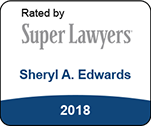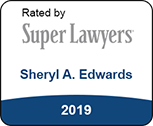
Sarasota Probate Attorney
Reliable Counsel for Probate Matters
Probate is necessary to pass ownership of the decedent’s probate assets to the decedent’s beneficiaries. If the decedent left a valid will, it will need to be admitted to probate in the court and will then be used to pass ownership of probate assets to the decedent’s beneficiaries. If the decedent had no will, probate is necessary to pass ownership of the decedent’s probate assets to those persons who are to receive them under Florida law.
What are Probate Assets?
Probate only applies to the assets that are owned by the decedent prior to death that does not have some other mechanism that automatically transfers the asset to a co-owner or beneficiary.
For example:
- Bank or Investment Accounts - If the account is solely in the name of the decedent and there isn’t a beneficiary already named in the Bank records or a “POD designation”, then that account could be considered a probate asset. On the other hand, if the account is jointly held, it cannot be considered a probate asset.
- Life Insurance Policy, Annuity or IRA - If these are payable to a specific beneficiary they are not considered probate. Alternatively, if these assets are payable to the decedent’s estate, they are considered probate assets.
- Real Estate Titles - With the exception of homestead property, if a title is solely in the decedent’s name or in the name of the decedent and another tenant in common, then it is considered a probate asset. However, a real estate title that is held by both the decedent and one or more joint tenants who have survivor-ship rights, is not considered a probate asset.
- Marital Assets - Property owned between a husband and wife are not considered probate assets as the entirety of one’s assets automatically goes to the surviving spouse.
- Living Trust or Revocable Trust - Property owned by a living trust or revocable trust will pass to the successor trustee without having to go through probate.
The Personal Representative is the person in charge of the administration of the decedent’s probate estate. If the decedent died with a will, usually the will name the person to act as the Personal Representative. In Florida, the term "Personal Representative" is used instead of such terms as "executor, executrix, administrator, and administratrix."
Contact our experienced team now to see the difference we can make for you.
How Is the Personal Representative Compensated?
The Personal Representative is entitled by law to reasonable compensation by statute. Section 733.617 provides for compensation to the Personal Representative of 3% for most estates and can be more or less depending on the circumstances of the case.
The probate court will require that a Personal Representative hire an attorney to assist in the administration of the decedent’s probate estate. Many legal issues arise, even in the simplest probate estate administration, and most of these issues will be novel and unfamiliar to non-attorneys.
The attorney for the Personal Representative assists and advises the Personal Representative in each step of the probate process and represents the Personal Representative in probate estate proceedings. The personal representative may choose to engage any attorney and is not bound to hire a particular attorney or firm if set forth in the Will.

Why Clients Continue to Choose Our Team
-
Over 30 Years of Experience
-
Sheryl A. Edwards is a Board Certified Specialist in Real Estate Law
-
Achieve Client Objectives in a Timely Manner
-
Selected for Super Lawyers 12 Times
-
Personalized Attention & Case Strategy
-
Your Goals Always Come First













